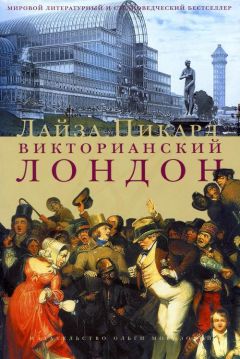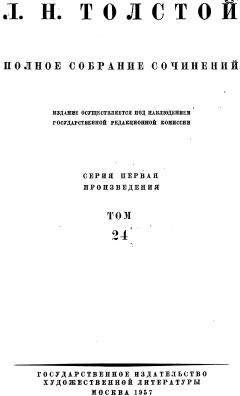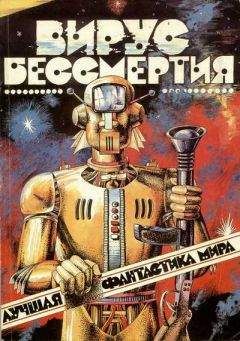183
Thea Holme, The Carlyles at Home, London, 1965.
Robert Ward, London’s New River, London, 2003.
Inwood, op. cit.
George Dodd, Days at the Factories, London, 1843.
R. H. Mottram. «Town Life», in Early Victorian England, 1934. На смену газу пришло электричество, но в Темпле газовые светильники оставались вплоть до 1970-х гг.
Beames, op. cit.
A. R. Bennett, London and Londoners in 1850s and 60s, London, 1924.
Mayhew, op. cit.
Graham Storey, Kathleen and Nina Burgis (ed.), The Letters of Charles Dickens, Vol. 6, Oxford, 1988.
Ее использовали при производстве берлинской лазури.
James Greenwood, The Wilds of London, London, 1881.
Hudson, op. cit.
John Hollingshead, My Lifetime, London, 1895.
Hawthorn, «The English Notebooks», in Xavier Baron, London, 1066–1914, Vol. II, Robertsbridge, East Sussex, 1997.
Hyams, op. cit.
Неопубликованный дневник Роберта Джеймса Ли. MS 3224, Wellcome Institute, упоминается в: Heather Creaton, Unpublished London Diaries, London, 2003.
Richardson, op. cit.
Неопубликованный дневник Томаса Кобба, Guidhall MS 18, 770, упоминается в: Creaton, op. cit.
Bennett, op. cit.
Theodor Fontane, 1844–59, London, 1939, включен в: Xavier Baron, op. cit.
Bennett, op. cit.
О Мейхью см. Предисловие. Тем, кого устрашит масштабность оригинальных томов Мейхью, я рекомендую три книги, изданные Питером Куэннеллом, May hew’s Characters и Mayhew’s London, избранные статьи из первых трех томов, опубликованные в 1951, и London’s Underworld из четвертого тома, опубликованная в 1950.
Gustav Dore and Blanchard Jerrold, London, London, 1872.
G. A. Sala, Gaslight and Daylight, London, 1859. Henry Mayhew and John Binny, The Criminal Prisons of London and Scenes of Prison Life, London, 1862.
Mayhew and Binny, op. cit.
James Greenwood, The Seven Curses of London, London, 1869.
M. L. Davies (ed.) Life as We Have Known It, London, 1931.
Greenwood, op. cit.
Mayhew, Vol IV.
G. A. Sala, Twice Round the Clock, London, 1859.
John Raymond (ed.), Queen Victoria’s Early Letters, London, rev. edn 1963.
John Hollingshead, Ragged London in 1861, London, 1861.
R. W. Vanderkiste, A Six Years’ Mission Among the Dens of London, London, 1854.
Greenwood, op. cit.
Hillingshead, op. cit.
Thomas Beams, The Rookeries of London, Londjo, 1850.
Helen Morris, Portrait of a Chef. The Life of Alexis Soyer, Cambridge, 1938. Сойер организовал также кухни с супом для бедняков в Дублине, что было очень успешным предприятием. Более всего он известен тем, что был шеф-поваром Реформ-Клаба, и тем, что в корне изменил доставку и готовку пищи во время Крымской войны.
Joseph Rogers, Reminiscences of a Workhouse Medical Officer, ed. Thorold Rodgers, London, 1889.
Название «работный дом» было новым, оно появилось после Закона о бедных.
Hollingshead, op. cit.
Его рассказ включен в книгу М. В. Smedley (ed.) Boarding-out and Pauper Schools Especially for Girls, London, 1875.
James Kay-Shuttleworth, Four Periods of Public Education, London, 1862.
Ralph Hyde (introd.) Stanford’s Library Map of London and its Suburbs, Lympne Castle, Kent, 1980.
Edward Hyams (trans. anded.), Taine’s Notes on England, London, 1957.
John Bailey (ed.), The Diary of Lady Frederick Cavendish, London, 1927.
Правила благотворительных учреждений слегка смягчились после принятия Закона о Union Chargeability в 1865 г., но все же оставались жесткими и тайными.
Thompson and Yeo, op. cit.
James Greenwood, The Wilds of London, London, 1881.
Hollingshead, op. cit.
Там же.
James Greenwood, The Seven Curses, op. cit.
Thomas Wright s. n. The Journeyman Engineer, The Great Unwashed, London, 1868.
Peter Vinten-Johansen et al., Cholera, Chloroform and the Science of Medicine: a Life of John Snow, Oxford, 2003.
John Hollingshead, Kagged London in 1861, London, 1861.
W. B. Tegetmeier, A Manual of Domestic Economy, London, 1867.
Thomas Beams, The Rookeries of London, London, 1850.
Эти корабли на Темзе торговали угрями долгое время. Хотя угрей ловили в Темзе, голландцы монополизировали рынок. «В Голландии было две компании, у каждой по пять кораблей. Корабли были построены с обширным резервуаром, где угри могли сохраняться живыми, сколько нужно. Один-два таких корабля всегда можно было увидеть у Биллингсгейта» — Томас Вебстер, «Энциклопедия домашнего хозяйства», Лондон, 1844.
G. A. Sala, Twice Round the Clock, London, 1859.
Ibid.
Mayhew, Vol. I. Эти удивительные башни из корзин на головах носильщиков можно увидеть до сих пор. Я видела их, когда была на рынке в 1955, в то время как я думала, что они давно уже исчезли.
D. Hudson, Munby: Man of Two Worlds, London, 1972.
Mayhew, op. cit.
George Dodd, Days at the Factories, London, 1843.
Ibid.
Ibid.
Peter Cunningham, Handbook of London, London, 1850 (2nd edn).
Jean Hawkes (trans. and ed.), The London Journal of Flora Tristan, London, 1982.
Dodd, op. cit.
Gustave Doré and Blanchard Jerrold, London, London, 1872.
Большая часть этих подробностей взята из книги Ben Weinreb and Christopher Hibbert, The London Encyclopaedia, London, 1983.
Vinten-Johansen, op. cit. Например, на Броад-стрит в Сохо была пивоварня, в которой трудились 80 рабочих.
Dodd, op. cit.
John Richardson, The Annals of London, London, 2000.
T. C. Barker and Michael Robbins, A History of London Transport, London, 1963.
The Illustrated London News, 30 November 1861.
The Builder, цитированный в книге Stephen Halliday, Making The Metropolis, London, 2003.
В дополнение к Додду я использовала информацию, любезно предоставленную мне архивистом Компании торговцев кожевенным товаром, Джеромом Фарреллом, в том числе фрагменты из книги Penelope Hunting, History of the Leathersellers’ Company, London, 1994.
Dodd, op. cit.
Ibid.
Thomas Wright, Some Habits and Customs of the Working Classes, London, 1867.
Wright, The Great Unwashed, op. cit.
Wright, Some Habits, op. cit.
E. P. Thompson and Eileen Yeo (eds), The Unknown Mayhew — Selections from the Morning Chronicle 1849–50, London, 1971.
Thompson and Yeo, op. cit.
Wright, Some Habits, op. cit.
Samuel Smiles, Self-Help with Examples of Conduct and Perseverance, London, 1859. Другая цитата: «Хотя английское чиновничество зачастую совершало грандиозные глупейшие ошибки, гражданам страны, как правило, удавалось действовать вопреки им с героизмом и благородством». Это было написано три года спустя после Крымской войны.





